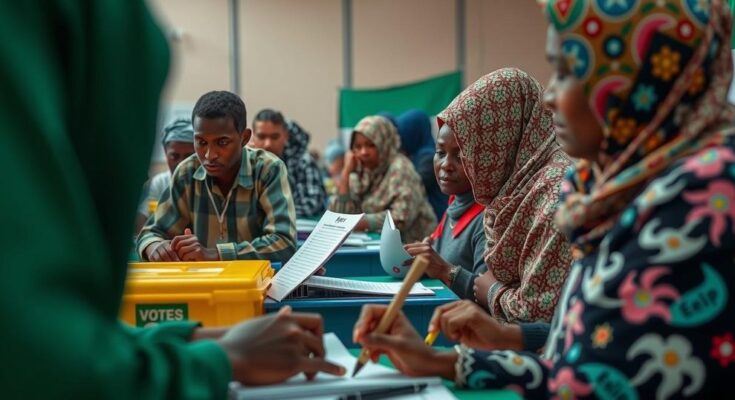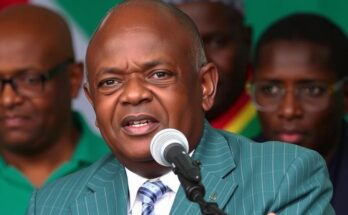Somaliland successfully conducted its presidential elections with over 1 million voters participating, yielding a peaceful process. Amidst ongoing geopolitical tensions with Somalia and Ethiopia, candidates focused on strengthening democracy and seeking international recognition. Vote counting has begun, with results expected by November 21.
Vote counting has commenced following the presidential elections held in Somaliland, concluding peacefully on Wednesday. The Somaliland National Electoral Commission (NEC) reported that polls closed at 6 p.m. local time, with over 1 million registered voters participating across approximately 2,000 polling locations. According to NEC Chairman Muse Hassan Yusuf, vote counting will begin from the polling center level and progress through districts and regions prior to the official result announcement, slated for November 21. General Mohamed Adan Saqadhi, head of the Somaliland Police Force, confirmed that the election unfolded without incident, expressing gratitude for the democratic process. Three candidates contested in the elections: incumbent President Muse Bihi Abdi from the Kulmiye party, Abdirahman Mohamed Abdullahi of the Waddani party, and Faisal Ali Warabe representing the UCID party. Each candidate has indicated intentions to fortify democracy, stimulate economic growth, and seek international recognition for Somaliland, which has aspired for such acknowledgment for 33 years. Following its declaration of independence in 1991, Somaliland has maintained a functional government, political stability, and established democratic practices, despite lacking international recognition. The elections pointed to a backdrop of heightened tensions between Somaliland and Somalia, particularly regarding Ethiopia’s recent memorandum with Somaliland involving a controversial lease of part of Somaliland’s coastline. This agreement has drawn ire from the Somali government, which views it as an encroachment upon its sovereignty, given that the regions are considered integral to Somali territory. Further exacerbating tensions, the recent expulsion of Ethiopian diplomats by Somalia has underscored the delicate relationship between the nations. Amidst these disputes, Somali officials have spoken against Ethiopian involvement in forthcoming peacekeeping ventures, reflecting the complexity of regional dynamics.
The article discusses the recent presidential elections in Somaliland, highlighting the peaceful conduct of the voting process and the ongoing vote counting. It presents the context of the elections, including the high stakes involved for the candidates concerning democracy and economic growth. The backdrop also includes geopolitical tensions with neighboring Somalia and Ethiopia, stemming from territorial disputes and international recognition issues, which further complicate the political landscape. These factors are crucial in understanding the significance of the electoral process in Somaliland and its aspirations.
In summary, Somaliland’s presidential elections marked a significant moment for the region, as evidenced by the peaceful voting process and commitment to democratic principles. The electoral outcomes will influence the ongoing quest for international recognition and economic advancement. Simultaneously, tensions with Somalia and Ethiopia remain a critical factor, potentially impacting future political stability and diplomatic relations.
Original Source: www.voanews.com




